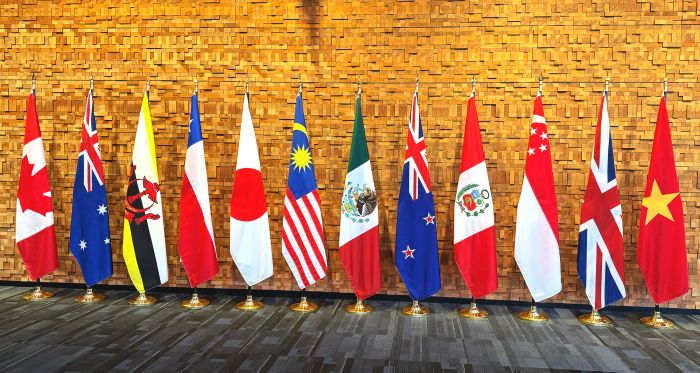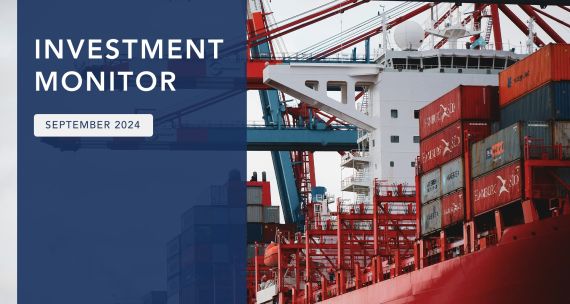The Asia Pacific Foundation of Canada, in partnership with Global Affairs Canada, organized a policy forum on the ‘inclusive trade’ aspects of the Comprehensive and Progressive Agreement for Trans-Pacific Partnership (CPTPP) in the six years since its ratification. The forum, held in Vancouver on November 27, 2024, took place on the margins of the eighth meeting of the CPTPP Commission.
‘Inclusive trade’ refers to the active promotion of under-represented stakeholders, such as women, Indigenous Peoples, youth entrepreneurs, and minority communities to participate in and take advantage of global trade flows.
***
On the heels of a momentous presidential election in the U.S., international trade experts convened in Vancouver in the last week of November to discuss the significance of the Comprehensive and Progressive Agreement for Trans-Pacific Partnership (CPTPP) in safeguarding free and inclusive trade.
The stakes are particularly high for Canada in light of U.S. President-elect Donald Trump’s threats to impose 25 per cent tariffs on products imported from Canada and Mexico. With the geopolitical uncertainties arising from increased trade protectionism, the CPTPP’s importance in fostering free and inclusive trade was at the centre of the forum’s discussions.
The CPTPP, hailed as the “gold standard” for trade agreements, with nearly 99 per cent of tariff lines becoming duty-free, holds immense potential as a model for free and inclusive trade. The Agreement facilitates a deepening of global trade linkages between the member economies in the Indo-Pacific region and beyond as new members, such as the United Kingdom, accede to the agreement.
The forum’s four panels reaffirmed the CPTPP’s value to inclusive trade and highlighted innovative approaches to ensuring that the agreement remains at the leading edge of global trade policy. Highlights from the discussions are provided below. For a complete list of panel speakers, please see the Forum Program.
Session 1: Ministers’ Inclusive Trade Action Group (ITAG) Panel
Mary Ng, Canada’s Minister of Export Promotion, International Trade and Economic Development, highlighted the importance, and the economic benefits, of ensuring that the interests of under-represented groups — e.g. small and medium enterprises (SMEs), women, and Indigenous groups — are reflected in the CPTPP’s inclusive trade agenda. She also emphasized the value of integrating SMEs into supply chains dominated by large corporations.
Ravi Kewalram, Australia’s First Assistant Secretary and Chief Negotiator, remarked that the benefits of free trade must be shared among the broader community. He highlighted Australia’s recent activities in encouraging greater participation in trade by under-represented groups, such as adding The First Nations Exporter category to the Australian Export Awards beginning next year and the chapter on Gender Balance and Women’s Economic Empowerment included in the Australia-United Arab Emirates Comprehensive Economic Partnership Agreement signed in November and currently under parliamentary review.
Claudia Sanhueza Riveros, Chile’s Under-Secretary for International Economic Relations, shared her country’s successes in implementing gender data tracking initiatives as a member of the Global Trade and Gender Arrangement (GTAGA). She remarked that women-led enterprises increase the complexity and prosperity of the economy as they provide new products.
Todd McClay, New Zealand’s trade and agriculture minister, noted the importance of holistic impact assessments of trade benefits. As an example, he observed that New Zealand-based Māori businesses that export are 70 per cent more productive than their counterparts that do not export. He also highlighted the value of inclusive trade as a vehicle for increasing broader trade activity.
Luis Rosendo Gutiérrez Romano, Mexico’s Vice-Minister for Foreign Trade, reaffirmed his country’s commitment to gender empowerment and including under-represented priority groups in trade initiatives. He also emphasized the need for inter-institutional co-operation for economic security and competitiveness, such as data sharing with Chile.
Session 2: Trade Diplomacy and the Role of Inclusive Trade
Several panellists noted that inclusive trade is not just a choice but a necessity, especially now that the global economy is faced with the impending “Trumponomics 2.0” and the decline of multilateral trade institutions’ influence on the world economic order.
Some also emphasized that the systematic inequalities created and reinforced by current trade practices must be scrutinized to identify groups being omitted and denied the benefits of expanded trade. The dangers of exclusion, noted one participant, led to Chile’s 2019 mass — and sometimes violent — protests over uneven economic redistribution.
Furthermore, some forum participants noted that if the CPTPP is to serve as a platform for inclusive trade, it must depoliticize its membership expansion beyond traditional alliances. One panellist proposed a potential membership intake in which all aspiring economies submit applications and are assessed on their ability to conform to the Agreement’s criteria.
Finally, the panel discussed the current gap in disaggregated data on the CPTPP’s impact on inclusivity; for instance, employment metrics do not reveal if increases occurred in value-added industries accessible to women, as opposed to male-dominated placements in upstream operations.
Session 3: Success Stories, Gaps, and Challenges in Utilizing CPTPP to Facilitate Inclusive Trade
The discussion began by recognizing the importance of ‘reclaiming’ ancestral trade routes historically used by Indigenous Peoples across the globe. In discussing Indigenous trade provisions, it was also noted that there are risks in reinforcing anachronistic and essentialist definitions of indigeneity that do not adapt or align with modern-day trade practices. It was agreed that more Indigenous voices could be included when drafting trade provisions.
While acknowledging the effectiveness of some initiatives, such as the Asia Pacific Foundation of Canada’s business missions to the Indo-Pacific by women-owned and/or women-led companies, the panel also underlined the lack of awareness around the CPTPP’s promotion of women entrepreneurship and SME participation and the need to make connections to inclusive trade more explicit for under-represented stakeholder groups.
Session 4: How Is CPTPP Dealing with Data and AI, and What’s the Path Forward for CPTPP’s Modernization?
During this session, several panellists remarked that knowledge of the CPTPP’s benefits eludes even multinational corporations operating in the regions covered by the Agreement, not to mention local SMEs who may not be aware of the Agreement and its provisions.
As a ‘living agreement,’ it was agreed that the CPTPP must strive to remain “comprehensive and progressive” through constant, shared updates reflecting innovative developments in the global economy, among other factors impacting the Agreement and its membership. One of these identified developments is the rise of artificial intelligence (AI), which will require innovative governance solutions. The panel discussed the possibility of adding an artificial intelligence chapter in a similar manner to the addition of the e-commerce chapter (Chapter 14) incorporated into the final TPP text in 2015, which was the predecessor of the CPTPP.
Additional considerations for the CPTPP discussed at the forum included cybersecurity, digital infrastructure, and the standardization of data regulations at the international level. Regarding the latter, it was noted that SMEs could be incentivized to contribute to open-source innovation developments to enhance market and client reach within the CPTPP’s regions.
Finally, it was noted that future CPTPP chapters on emerging technologies will need to weigh sustainability considerations. For example, energy-intensive trade activities reliant on digitalization will require sustainable critical mineral extraction, renewable energy, and AI-powered data centres to process trade-related data. Within this space, Canada holds much potential for global carbon capture and storage in provinces such as Manitoba, Québec, and Saskatchewan.
APF Canada Resources on the CPTPP
- CPTPP Portal
- International Trade & Investment Report: The Impact of the CPTPP on Trade Between Canada and the Asia Pacific
- The Impact of the CPTPP on Canada-Asia Pacific Foreign Direct Investment Flows
- Report
- A New Approach to Managing CPTPP Accessions
- Comprehensive and Progressive Agreement for Trans-Pacific Partnership (CPTPP) Fact Sheet
- The CPTPP Bids of China and Taiwan: Issues and Implications: An Update
- The CPTPP Bids of China and Taiwan: Issues and Implications
- International Trade Inclusivity: The CPTPP and Indigenous International Trade and Investment
• Edited by Erin Williams, Senior Program Manager, Vina Nadjibulla, Vice-President Research & Strategy, and Ted Fraser, Senior Editor, APF Canada






